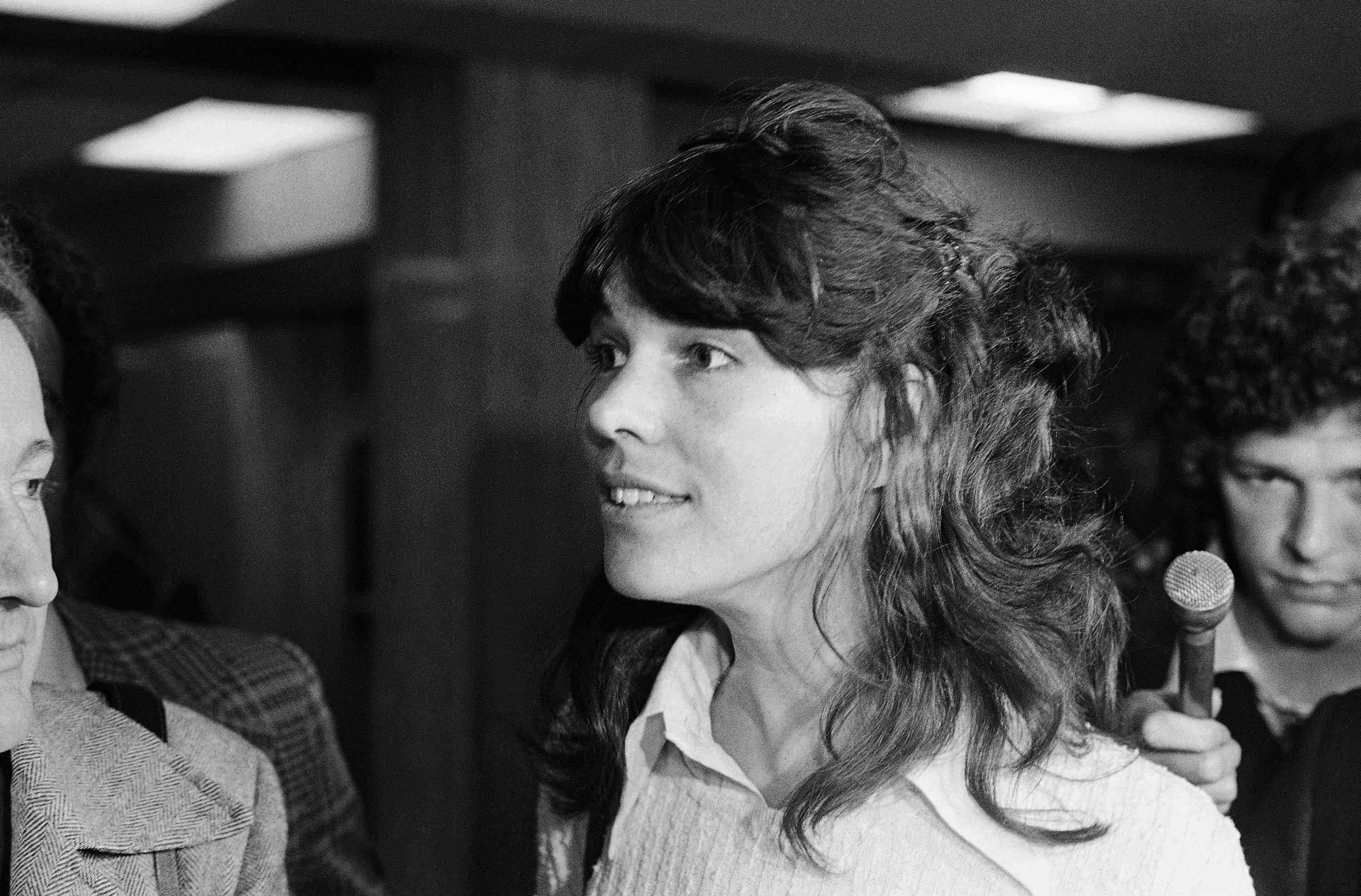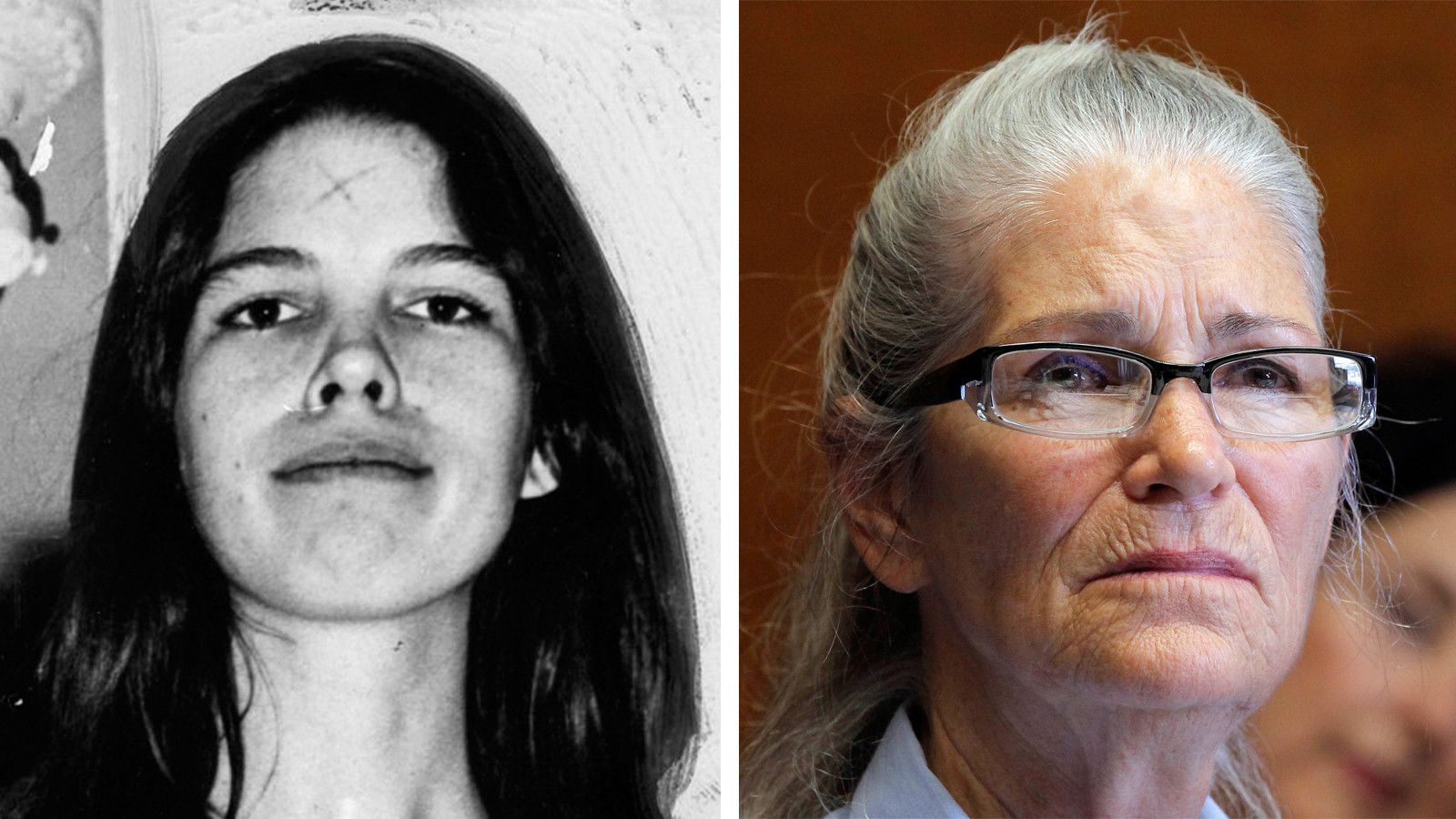Leslie Van Houten, a name that echoes through the annals of criminal history, is more than just a figure tied to one of the darkest chapters of the 1960s. This isn’t just another story about crime or punishment; it’s about understanding the complexities of a woman whose life became intertwined with infamy. From her involvement in the infamous Manson Family murders to her relentless pursuit of redemption, Leslie Van Houten’s journey is as intriguing as it is haunting.
When you think about the Manson Family, your mind instantly drifts to the horrors of the Tate-LaBianca murders. But let’s zoom in on one particular member whose story has captivated public interest for decades—Leslie Van Houten. Her case isn’t just about guilt or innocence; it’s a reflection of how society perceives rehabilitation and second chances.
Today, we’ll unravel the layers of Leslie Van Houten’s life, from her early years to the infamous night that changed everything, and beyond. Stick around because this isn’t just a tale of crime—it’s a narrative of transformation, justice, and the human spirit.
Read also:Unveiling The Mysteries Of March 15 Zodiac Pisces And Aries Showdown
Table of Contents
- Leslie Van Houten: A Brief Biography
- Early Life and Background
- Leslie Van Houten and the Manson Family
- The Crimes That Shocked the Nation
- Legal Battles and Parole Hearings
- Public Opinion and Controversy
- Psychological Insights into Leslie Van Houten
- Rehabilitation and Redemption
- The Legacy of Leslie Van Houten
- Conclusion and Final Thoughts
Leslie Van Houten: A Brief Biography
Before diving deep into the complexities of Leslie Van Houten’s life, let’s take a quick look at her biographical details. Leslie Van Houten was born on August 23, 1949, in Redlands, California. She grew up in a middle-class family and was described as a bright and sociable young woman. However, her life took a drastic turn when she became involved with Charles Manson and his infamous cult, the Manson Family.
Personal Information at a Glance
| Full Name | Leslie Van Houten |
|---|---|
| Date of Birth | August 23, 1949 |
| Place of Birth | Redlands, California |
| Family Background | Middle-class family |
| Notable Event | Involvement in the Tate-LaBianca murders |
Early Life and Background
Leslie Van Houten’s early life was relatively unremarkable. Born in Redlands, California, she was the youngest of three children. Her parents, a civil engineer and a housewife, provided a stable home environment. Leslie was known for her academic achievements and active participation in school activities.
But life had other plans for her. In her late teens, Leslie began to explore alternative lifestyles, seeking meaning beyond the conventional. This curiosity eventually led her to the Manson Family, a group that promised a sense of belonging and purpose. Little did she know, this decision would alter the course of her life forever.
Leslie Van Houten and the Manson Family
The Manson Family, led by the charismatic yet sinister Charles Manson, was more than just a cult. It was a countercultural movement that attracted disenchanted youth during the turbulent 1960s. Leslie Van Houten was drawn to the group’s ideology, which promised a utopian vision of the world.
Within the Manson Family, Leslie found acceptance and a sense of community. However, this acceptance came at a steep price. Manson’s manipulative tactics and apocalyptic visions would soon lead to some of the most infamous crimes in American history.
Key Influences Within the Cult
- Charles Manson’s charismatic leadership
- The group’s communal living arrangements
- Psychedelic drug use as a means of control
The Crimes That Shocked the Nation
On the night of August 9-10, 1969, Leslie Van Houten, along with other members of the Manson Family, committed one of the most heinous crimes in American history—the murders of Sharon Tate and Leno and Rosemary LaBianca. These brutal killings shocked the nation and left an indelible mark on the public consciousness.
Read also:Dev Patels Wife The Story Of Love Success And Family
Leslie’s role in the murders was significant. She was one of the perpetrators who physically participated in the LaBianca murders, wielding a knife and leaving chilling messages at the crime scene. Her actions during that night would haunt her for the rest of her life.
Legal Battles and Parole Hearings
Following her arrest, Leslie Van Houten faced a series of trials and legal battles. Convicted of first-degree murder, she was sentenced to death, a sentence later commuted to life imprisonment due to changes in California’s death penalty laws. Over the years, Leslie has appeared before parole boards multiple times, each hearing bringing renewed hope and controversy.
Her parole hearings have been a battleground of emotions, with supporters arguing for her rehabilitation and detractors emphasizing the gravity of her crimes. Despite facing numerous rejections, Leslie has remained resilient, continuing to advocate for her freedom.
Notable Parole Hearings
- First parole hearing in 1978
- Significant hearing in 2016, where Governor Jerry Brown denied her release
- Recent developments in her case, including public support
Public Opinion and Controversy
Leslie Van Houten’s case has sparked intense public debate. While some view her as a remorseful individual deserving of a second chance, others remain steadfast in their belief that her crimes are unforgivable. Public opinion is deeply divided, reflecting broader societal views on justice and mercy.
Supporters of Leslie point to her exemplary behavior in prison, her educational achievements, and her commitment to helping others. They argue that her transformation over the years is a testament to the possibility of redemption. Critics, however, contend that the severity of her crimes warrants a lifetime behind bars.
Psychological Insights into Leslie Van Houten
Understanding Leslie Van Houten’s psyche is crucial to comprehending her actions and subsequent transformation. Psychologists have studied her case extensively, shedding light on the factors that led her to commit such heinous acts and the mechanisms behind her rehabilitation.
One prevailing theory suggests that Leslie’s involvement in the Manson Family was a result of her susceptibility to manipulation and the desire for belonging. Over time, however, she has demonstrated remarkable resilience and self-awareness, qualities that have contributed to her growth.
Key Psychological Findings
- Susceptibility to manipulation during her youth
- Development of self-awareness and remorse
- Active participation in therapy and educational programs
Rehabilitation and Redemption
Leslie Van Houten’s journey towards rehabilitation is a powerful narrative of transformation. Over the decades, she has engaged in numerous educational and therapeutic programs, earning degrees and certifications while behind bars. Her commitment to self-improvement and helping others has earned her the respect of many within the prison system.
Her efforts have not gone unnoticed. Leslie has become a symbol of hope for those advocating for prison reform and second chances. Her story serves as a reminder that even the darkest pasts can be redeemed through perseverance and determination.
The Legacy of Leslie Van Houten
As Leslie Van Houten’s case continues to evolve, her legacy remains a complex blend of infamy and inspiration. Her involvement in one of the most notorious crimes in history cannot be erased, but her journey towards redemption offers a glimmer of hope.
Leslie’s legacy is not just about her crimes; it’s about the broader implications of justice, rehabilitation, and societal change. Her story challenges us to rethink our perceptions of crime and punishment, encouraging a more compassionate and understanding approach to those seeking redemption.
Conclusion and Final Thoughts
In conclusion, Leslie Van Houten’s life is a testament to the complexities of human nature. From her involvement in the Manson Family murders to her relentless pursuit of redemption, her story is one of transformation and resilience. While the gravity of her crimes cannot be ignored, her efforts towards rehabilitation offer a powerful narrative of hope.
We invite you to reflect on Leslie Van Houten’s journey and consider the broader implications of justice and mercy. Share your thoughts in the comments below or explore other articles on our site to delve deeper into similar topics. Together, let’s continue the conversation about the possibilities of redemption and second chances.
And hey, if you enjoyed this article, don’t forget to hit that share button! Let’s keep the dialogue going.


